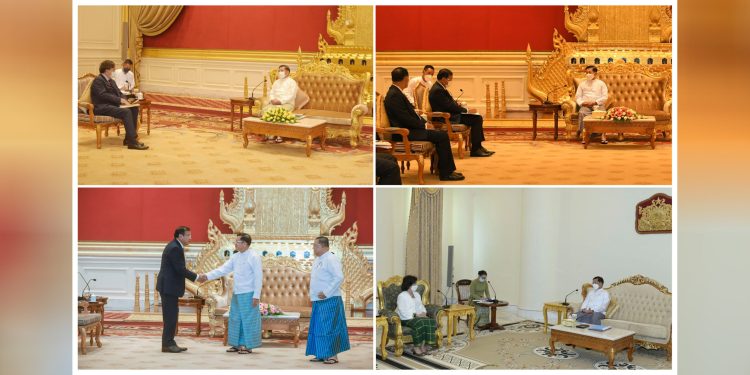When the UN Secretary General’s special envoy on Myanmar Noeleen Heyzer met Myanmar junta leader Min Aung Hlaing on Wednesday, the world’s attention was focused on what they discussed and the substance of the meeting. Largely overlooked were other details—like how and where she was received—reflecting the host’s attitude toward his guest.
Sadly, in this respect, contrary to other international dignitaries who preceded her, Heyzer received a low-key reception from the junta despite her status as the UN special envoy making her first visit to Myanmar since the military coup last year.
The meeting took place at the junta leader’s office in Naypyitaw at 2 p.m. on Wednesday. According to the regime’s announcement, the meeting venue turned out to be the parlor of the State Administration Council (SAC) Chairman’s Office, not the Credentials Hall, where Min Aung Hlaing normally receives international guests.
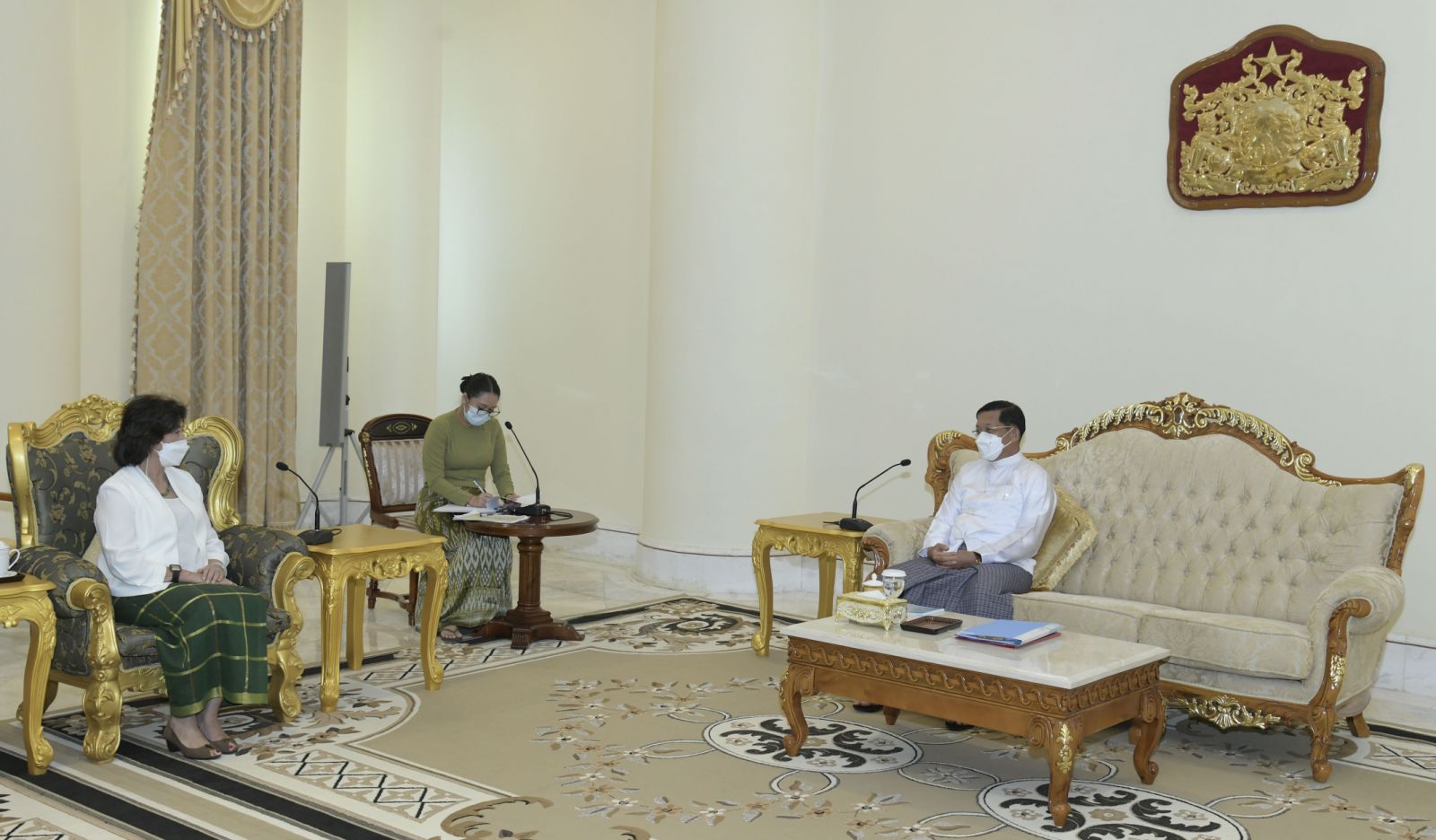
In June, when the Association of Southeast Asian Nations (ASEAN)’s special envoy on Myanmar was in the country for the second time, Min Aung Hlaing welcomed Prak Sokhonn at the Credentials Hall, which is dominated by a huge gilded throne—a symbol of Myanmar’s sovereignty—inside the Presidential Residence.
The same month last year, the junta chief received ASEAN Secretary-General Lim Jock Hoi and Erywan Yusof, Brunei’s foreign affairs minister, there.
It was the same hall where Min Aung Hlaing received Prak Sokhonn as the ASEAN envoy in March.
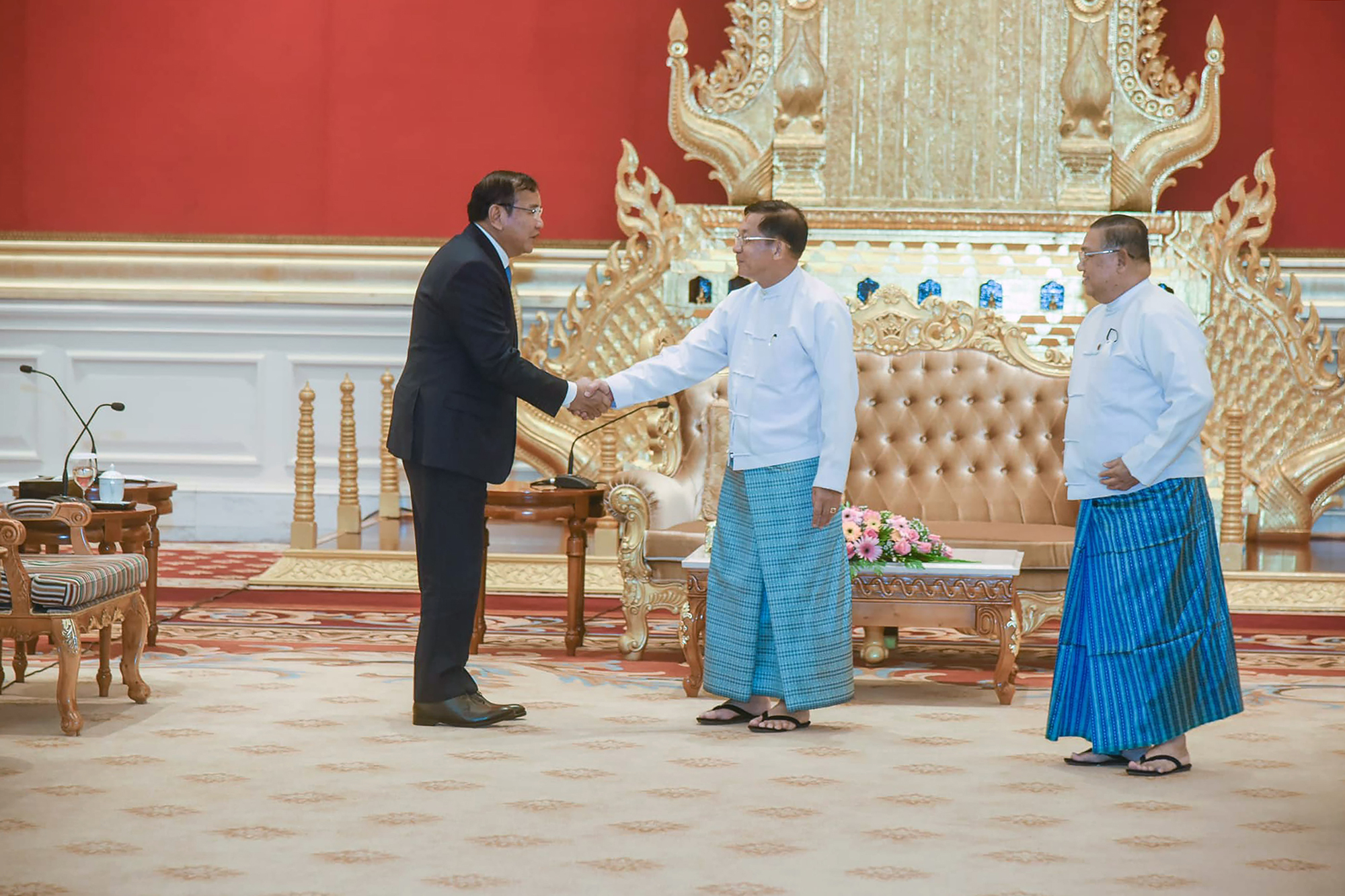
Since 2011, the Credentials Hall of the Presidential Residence, which has been occupied by Min Aung Hlaing since the takeover, has been used by successive Myanmar presidents to welcome international diplomats.
Early this month when Russian Foreign Minister Sergei Lavrov was in Naypyitaw, he was ushered into the hall to see his host Min Aung Hlaing.
The same treatment was even granted to an ex-diplomat: Bill Richardson, the former New Mexico governor, was greeted there when he was in Naypyitaw in November last year.
So, why didn’t UN special envoy Heyzer get the same reception?
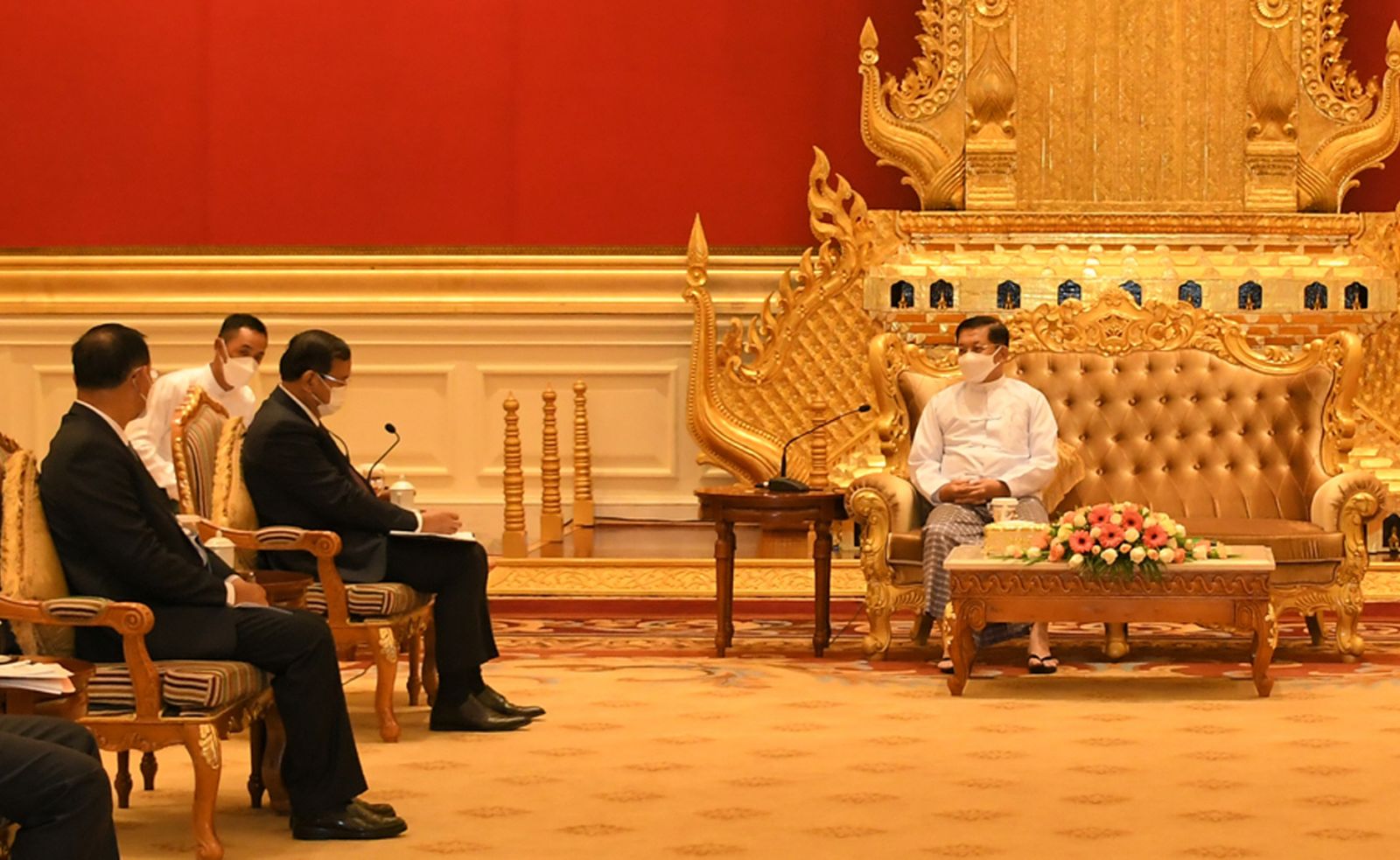
There is a long history of feuding between the UN and Myanmar’s successive military dictators. The current regime leaders are taking their grudges out on Heyzer, as the world body’s special envoy to their country.
The Singaporean diplomat arrived in Yangon on Tuesday on her inaugural mission to Myanmar since succeededing Christine Schraner Burgener of Switzerland as the UN special envoy in October last year.
Heyzer was however received by Min Aung Hlaing in the parlor of the latter’s office. It was the same venue in which he received Hiromichi Watanabe, a member of Japan’s lower house of representatives for the ruling Liberal Democratic Party, on Monday. It is speculated that the lawmaker sought the release of a Japanese filmmaker who was arrested on July 30 at a protest in Yangon.
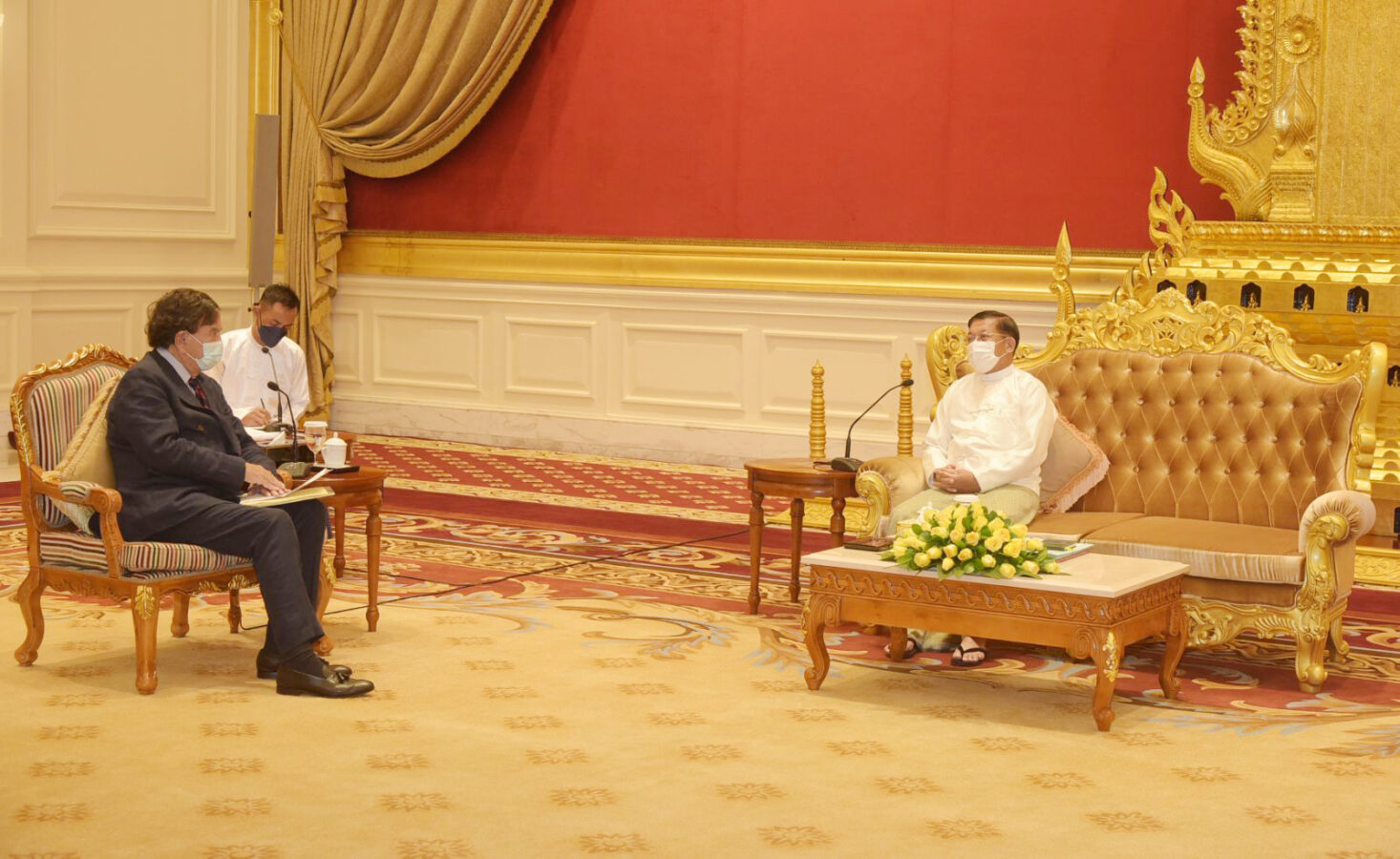
Prior to receiving permission to travel to Myanmar, Heyzer came under fire for controversial remarks deemed to be supportive of the regime. At her meeting with the junta leader, she wore a green skirt; an eyesore to some people, who wondered if she was trying to appease Min Aung Hlaing. The color green is associated with the Myanmar military.
Sadly for Heyzer, Min Aung Hlaing was only too eager to give the UN a slap in the face. The junta media devoted only one line to the meeting in their reports, saying that the two sides discussed “promoting trust”, meaning no breakthrough came out of the meeting.
At the same time, the junta used Heyzer to create the impression that it has legitimacy to govern Myanmar.
Shortly before the meeting, the regime spokesperson said the UN special envoy was due to have an official meeting with the “current Myanmar government,” implying that they are the rightful government of Myanmar and that’s why the envoy came to see them. But in a statement released late Wednesday, the envoy said: “UN engagement does not in any way confer legitimacy.”
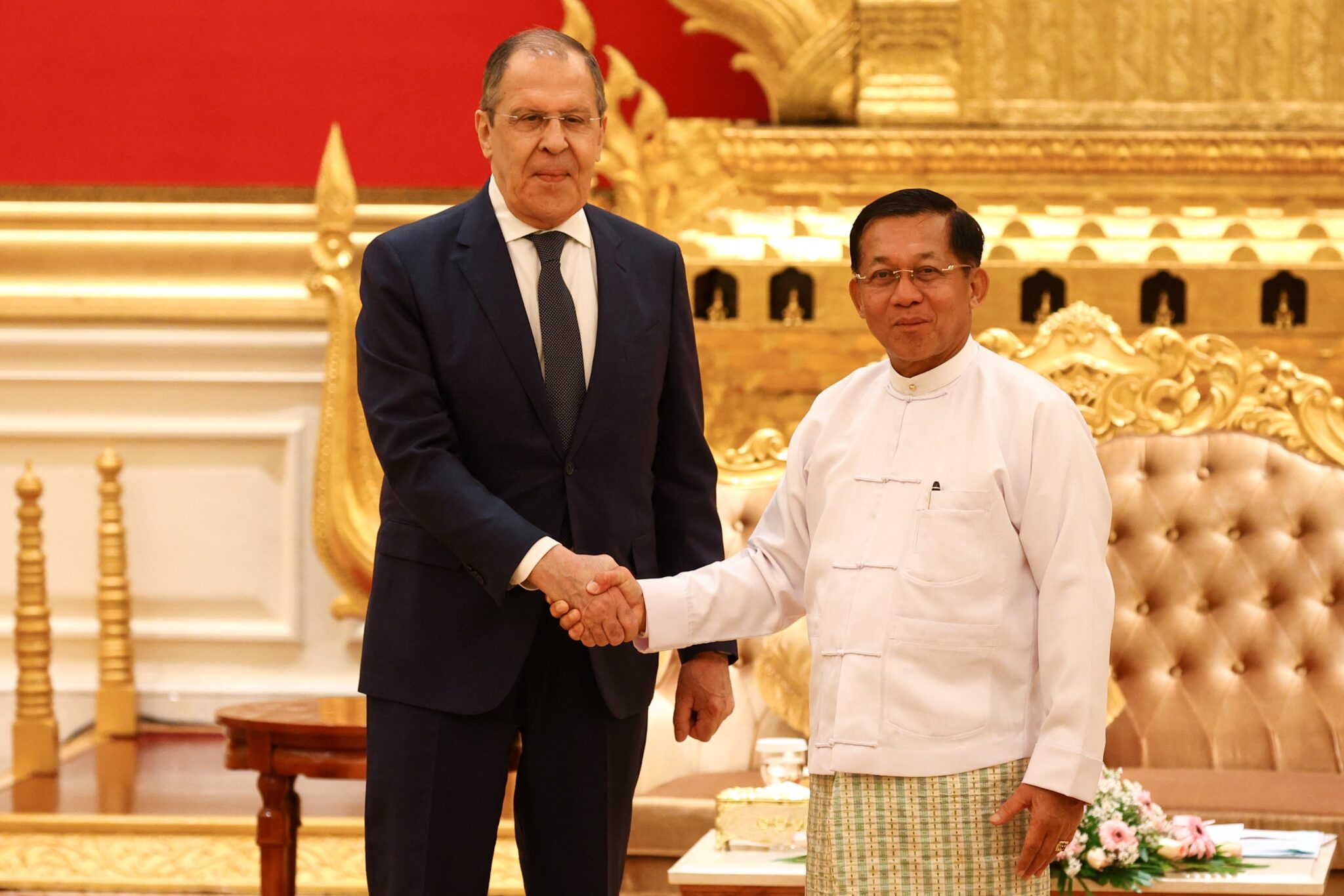
Furthermore, the regime harbors grudges against Myanmar Ambassador to the UN U Kyaw Moe Tun, who was appointed by the ousted National League for Democracy government and has utilized his UN platform to humiliate the junta on the international stage.
The regime is angry that the UN has decided to continue recognizing U Kyaw Moe Tun, while refusing to accept the junta’s representative. In retaliation, the regime closed Schraner Burgener’s office in Myanmar.
And it took nearly one year for Heyzer to meet the generals—receiving lowly treatment when she did.
Under the previous military regime led by Than Shwe, Myanmar was known as a “diplomatic graveyard”, chiefly for the UN’s repeated failed missions to the country. To Myanmar’s generals, UN representatives are nothing more than diplomatic pawns in a game to deceive the international community.
Heyzer now joins her predecessors in the diplomatic graveyard in Naypyitaw.


